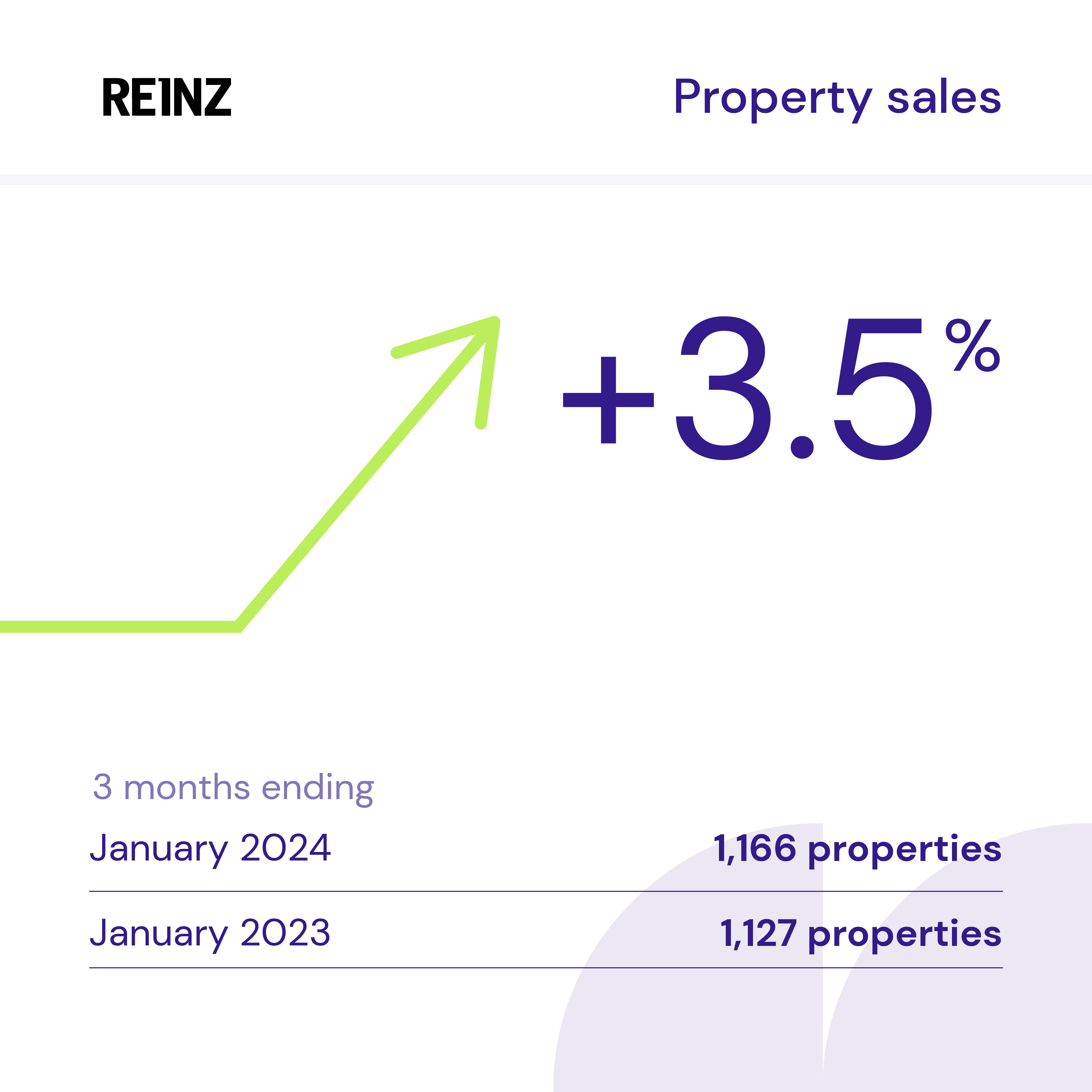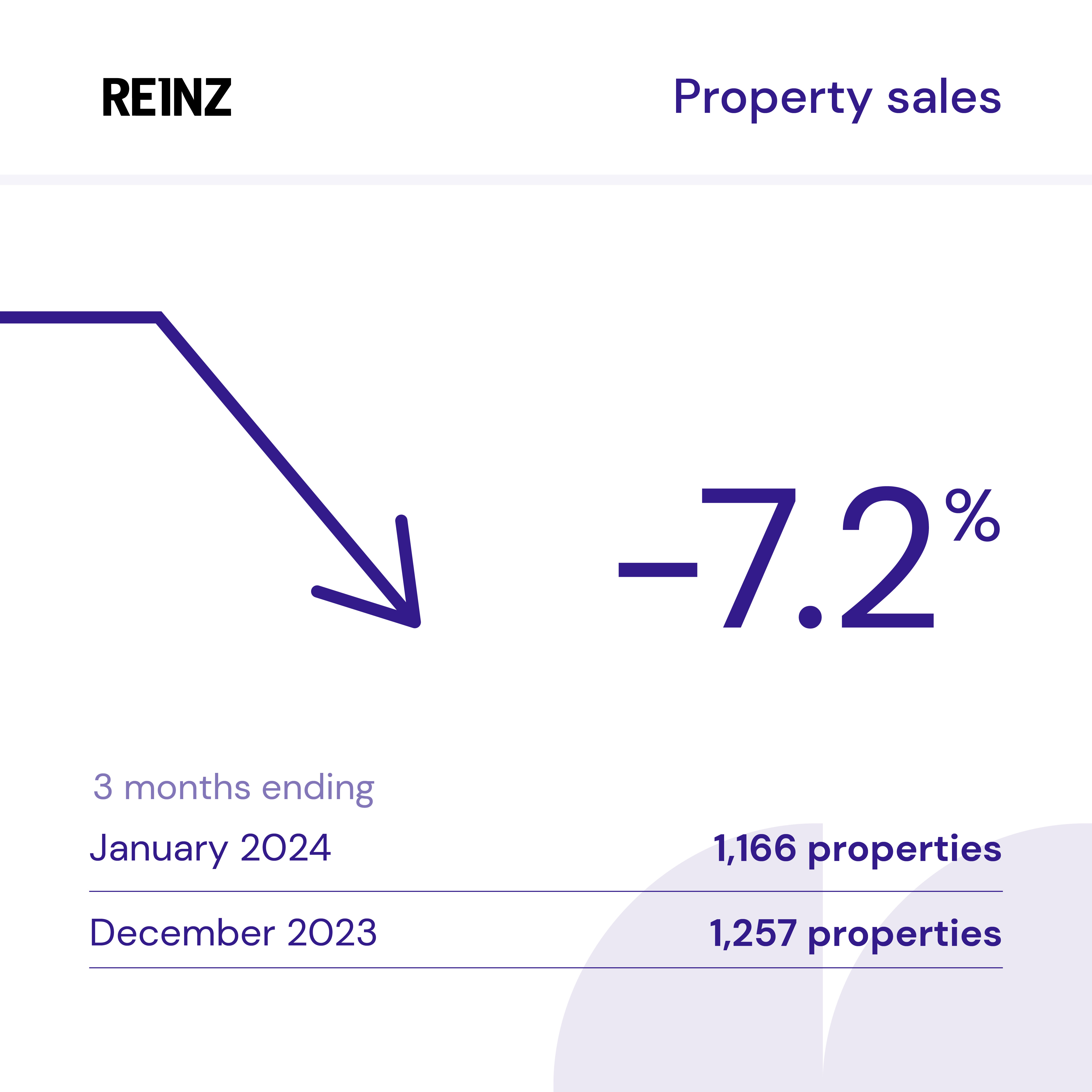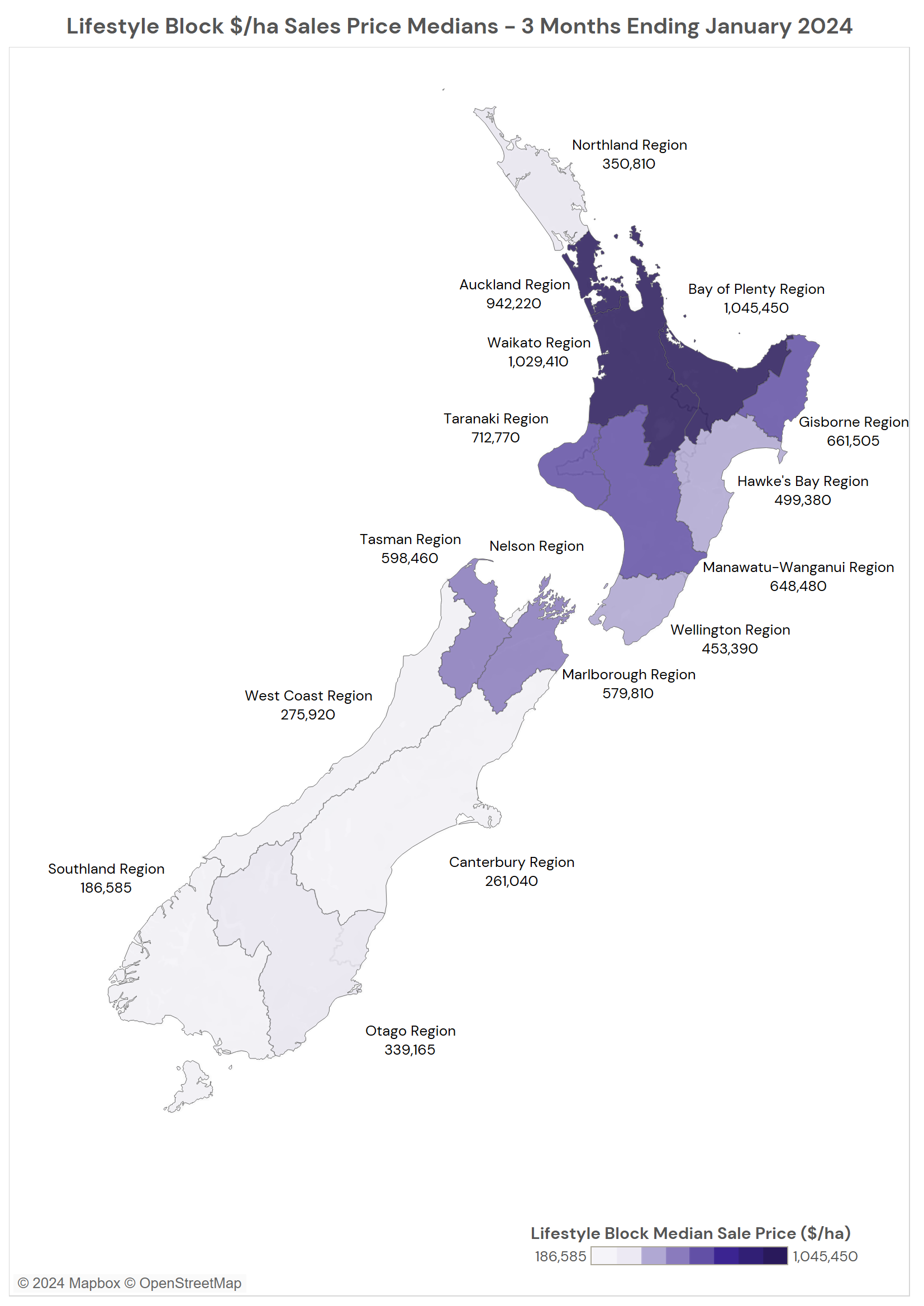Click here for Lifestyle Press Release
Click here for Rural Press Release
The Real Estate Institute of New Zealand (REINZ) released data today showing there were 91 fewer lifestyle property sales (-7.2%) for the three months ended January 2024 than in the three months ended December 2023. Overall, there were 1,166 lifestyle property sales in the three months ended January 2024, an increase from the 1,127 lifestyle property sales for the three months ended January 2023 (+3.5%), and 1,257 lifestyle property sales for the three months ended December 2023.
In the year to January 2024, 5,273 lifestyle properties were sold, a decrease of 1,017 (-16.2%) from the year to January 2023. Lifestyle property sales totalled $5.79 billion for the year to January 2024.
The median price for all lifestyle properties sold in the three months to January 2024 was $950,000, which was $80,000 lower compared to the three months ended January 2023 (-7.8%). The median price for Bare land Lifestyle properties sold in the three months to January 2024 was $420,000, which was $44,000 lower compared to the three months ended January 2023 (-9.5%). The median price for Farmlet Lifestyle properties sold in the three months to January 2024 was $1,060,000, which was $110,800 lower compared to the three months ended January 2023 (-9.5%).
Shane O’Brien, Rural Spokesman, at REINZ says: “The number of sales of Lifestyle properties is back slightly from December 2023 as much of the month was taken up by holidays but was up on the corresponding period in 2023 signalling a continued improvement in the market following trends in rising activity in the residential market across much of New Zealand.”
“A reduction in the sale of bareland properties was not unexpected as buyers weigh up increased building costs and timelines along with a reduction in the number of blocks available as developers work through new government policies on developing productive land.”
“Although the volume of sales was only back slightly on the same time in 2023, it is a marked reduction in the total sales recorded for the same period in 2022, being back close to 50% by volume across New Zealand.”
Nine regions had an increase in sales compared to January 2023, with Manawatu-Wanganui (+19 sales) and Nelson/Marlborough (+19 sales) showing the greatest increases. Auckland (-50 sales) and Waikato (-8 sales) saw the greatest decreases in sales in the three months to January 2024 compared to the three months to January 2023. Sales increased in three regions compared to the three months to December 2023.
In five regions, the median price of lifestyle blocks increased between the three months ended January 2023 and the three months ended January 2024. The most notable increases were in Wellington (+19.4%) and Southland (+11.3%), with the largest decreases were in Gisborne/Hawkes Bay (-25.8%) and West Coast (-13%).
The median number of days to sell for lifestyle properties increased by 13 days in the three months to January 2024 compared to the three months to January 2023, reaching 65 days. Manawatu-Wanganui (55 days) had the shortest number of days to sell in January 2024. The West Coast had the longest number of days to sell (84 days).


